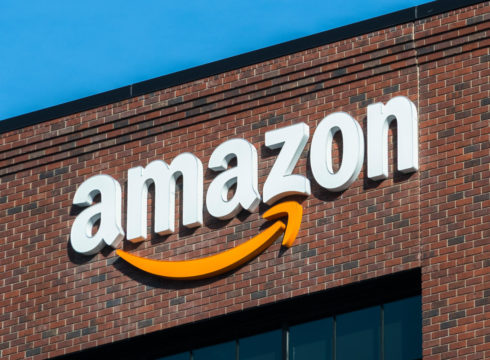Engagement with the Indian government makes Amazon optimistic, CFO said
Amazon expects stable ecommerce policy to allow increased investments in India business
The new ecommerce rules in Feb 2019 had come down hard on foreign-funded companies
Inc42 Daily Brief
Stay Ahead With Daily News & Analysis on India’s Tech & Startup Economy
The changes in ecommerce rules from the Indian government hurt Amazon and Flipkart badly and was driven by a call to protect India’s burgeoning seller class, as well as smaller ecommerce players who cannot match the deep pockets of India’s two biggest online shopping platforms. The focus in the ecommerce sector these days is around deep discounting and predatory pricing, along with an odd case of counterfeit products, but with all the attention around data and policy, the ecommerce business has definitely been hit by the government rules.
Amazon, in particular, has had to take some brands off its India website in the aftermath of the new rules. But it is now gearing up for the annual Diwali sale in a big way. The company has said it would invest in infrastructure and technology in the Indian business and says it expects a more stable policy environment in the country, after the upheaval which began earlier this year.
Amazon CFO Brian Olsavsky told investors during a Q2 earnings call that the company is feeling more optimistic and can now focus on the big sale season during the Indian festival months. “Our engagement with the Indian government makes us optimistic about partnering and collaborating to seek a stable predictable policy that allows us to continue investing in our technology and infrastructure,” Olsavsky reportedly said. He added that the number of Prime subscribers has doubled in the last 18 months around the world, and the revamped global selling programme is also addressing Indian sellers relations.
The Indian government had communicated its commitment to protecting small traders from predatory discounting and pricing behavior by foreign-funded companies in June 2019. The warning was issued in a closed-door meeting between Minister of Commerce and Industry, Piyush Goyal, and ecommerce marketplaces. A Reuters report cited sources at the meeting saying that the ecommerce companies such as Amazon and Flipkart have been told to ensure compliance with new foreign direct investment (FDI) rules.
The new FDI rules which came into effect from February 2019 prohibit large online marketplaces to exercise ownership or control over the inventory of their sellers. Cashbacks provided by group companies of marketplace entity to buyers shall be fair. Ecommerce marketplace entity will not mandate any seller to sell any product exclusively on its platform only.
Beyond exclusivity, the notification also prohibited marketplaces from making more than 25% of purchases of a vendor. As a result, Amazon and Flipkart suffered major disruption for a few weeks as they looked for loopholes.
- Flipkart was reportedly building a layer of B2B entities code-named Alpha Sellers, who will act as intermediaries between its wholesale arm, Flipkart India and its prominent online sellers in order to comply with the norms.
- Amazon lowered its commission charges by 35% for famous fashion sellers and by over 50% on specific FMCG categories in order to attract independent sellers and establish itself as a friendly marketplace.
Note: We at Inc42 take our ethics very seriously. More information about it can be found here.


